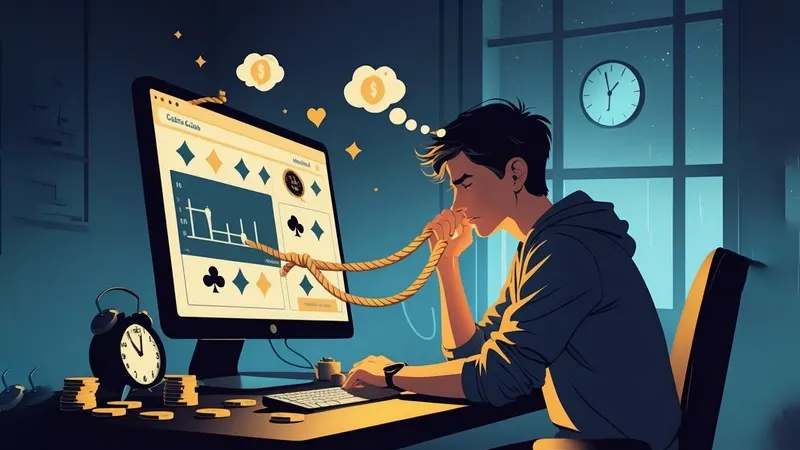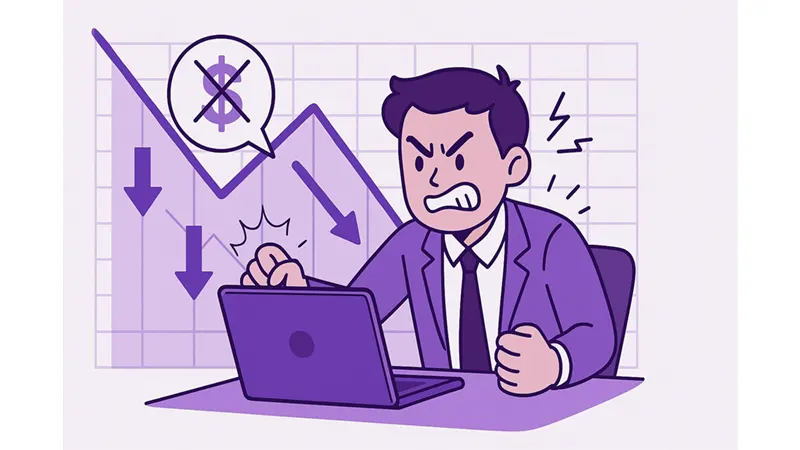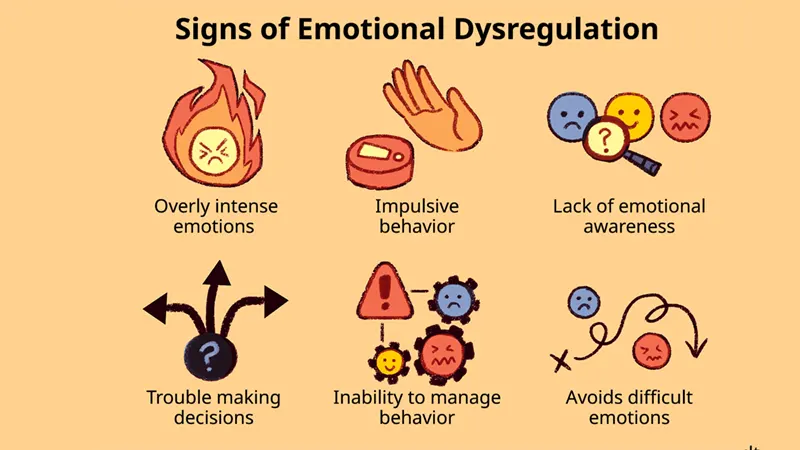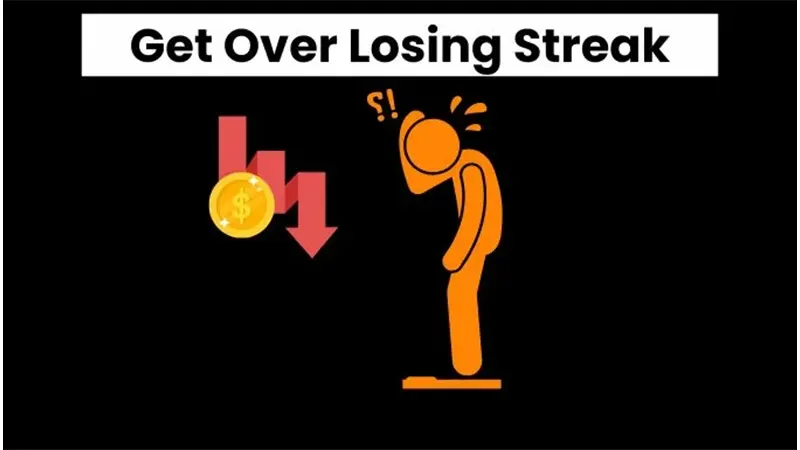Every gamer has experienced the frustration of consecutive losses – that sinking feeling when victory seems perpetually out of reach, when every decision backfires, and when luck appears to have completely abandoned you. These moments test not just your gaming skills, but your emotional resilience and mental strength. The disappointment, anger, and sense of helplessness that accompany losing streaks are universal experiences that transcend skill levels, gaming platforms, and individual preferences.
However, the real challenge isn’t the losses themselves, but how we respond to them. When emotions spiral out of control, they create a destructive cycle that transforms temporary setbacks into prolonged periods of poor performance and negative experiences. Players who cannot manage their emotional responses often find themselves trapped in what gaming communities call “tilt” – a state where frustration clouds judgment and leads to increasingly poor decision-making.
When the Game Tests Your Mental Fortitude
This comprehensive guide will explore the psychological mechanisms behind emotional volatility during losing streaks, identify the warning signs of emotional breakdown, and provide practical strategies for maintaining composure when the odds seem stacked against you. By understanding both the causes and solutions, you can transform these challenging moments from sources of frustration into opportunities for growth and improved performance.
Platforms like 91 Club recognize the critical importance of emotional well-being in gaming experiences. Rather than exploiting players’ emotional vulnerabilities, responsible gaming environments actively encourage self-control, positive mindset maintenance, and healthy coping mechanisms that enhance rather than compromise the overall gaming experience.
The Psychology Behind Losing Streaks – A Universal Experience
Losing streaks represent one of the most psychologically challenging aspects of competitive gaming, affecting players regardless of their experience level or natural talent. These periods of consecutive defeats trigger a complex web of emotional and cognitive responses that can fundamentally alter how we perceive ourselves, our abilities, and the fairness of the gaming environment itself.
The initial impact of repeated losses typically manifests as a gradual erosion of self-confidence. Each defeat chips away at the player’s belief in their capabilities, creating doubt about strategies that previously seemed effective. This confidence crisis often leads to second-guessing during crucial moments, hesitation when decisive action is required, and overthinking in situations that demand instinctive responses.
Anger and frustration naturally follow as the losing streak continues. These emotions stem from the gap between expectations and reality – the fundamental belief that effort and skill should translate into success. When this expectation is repeatedly violated, players experience cognitive dissonance that manifests as irritation, blame-seeking behavior, and an increasing tendency to attribute losses to external factors rather than examining their own performance objectively.

The phenomenon known as “tilt” represents the most dangerous escalation of these emotional responses. In this state, emotions completely override rational decision-making processes. Players experiencing tilt make increasingly reckless choices, abandon proven strategies in favor of desperate gambles, and often display behaviors they would normally find unacceptable. The irony is that tilt typically leads to even worse performance, creating a self-reinforcing cycle of poor decisions and negative outcomes.
These psychological challenges often manifest in destructive behaviors that extend beyond individual performance. Players may spam games repeatedly without taking breaks, make impulsive financial decisions like purchasing in-game items or upgrades they cannot afford, or become toxic toward teammates who have nothing to do with their personal struggles. Understanding these patterns is the first step toward breaking free from their influence.
Why Emotions Become Uncontrollable During Consecutive Losses
The loss of emotional control during gaming setbacks stems from several deeply rooted psychological mechanisms that operate below our conscious awareness. Perhaps the most powerful trigger is the violation of our internal sense of fairness and deservingness. Most players develop an implicit belief that consistent effort and reasonable skill should produce proportional results. When reality contradicts this expectation through extended losing streaks, it creates psychological stress that can overwhelm our normal coping mechanisms.
Self-imposed pressure to “recover” losses creates a dangerous escalation in emotional intensity. Players often fall into the trap of believing they must immediately reverse their fortunes, leading to increasingly desperate and poorly calculated risks. This recovery mentality transforms what should be individual games into high-stakes attempts to validate self-worth, making each subsequent loss feel more personal and devastating than it actually is.

Game design elements can inadvertently contribute to emotional instability during difficult periods. Some games include mechanics that create the perception of near-misses or “almost wins,” which can be more psychologically frustrating than clear defeats. Additionally, matchmaking systems that aren’t perfectly calibrated might create situations where players face consistently challenging opponents, leading to legitimate feelings of unfairness that compound emotional distress.
Warning Signs of Emotional Control Loss
Recognizing the early warning signs of emotional breakdown during gaming sessions is crucial for preventing small frustrations from escalating into major tilting episodes. These indicators often appear gradually, making them easy to overlook until they’ve already significantly impacted your performance and enjoyment.

Behavioral changes provide equally important warning signals about your emotional state. Continuous playing without breaks, especially when losses are mounting, indicates that rational decision-making has been compromised by emotional urgency. The compulsive need to “play just one more game” to recover losses is a classic sign that emotions rather than logic are driving your choices.
Impulsive financial decisions during or immediately after gaming sessions represent another serious warning sign. This might include purchasing in-game items you hadn’t planned to buy, upgrading equipment impulsively, or spending money on gaming-related purchases as an emotional response to frustration. These decisions are often regretted once emotions stabilize, but they can cause lasting financial consequences.
Social behavior changes frequently accompany emotional control issues in gaming. You might find yourself becoming unusually critical of teammates, engaging in arguments in chat rooms, or displaying hostility toward other players who haven’t actually done anything wrong. Alternatively, some players withdraw socially, becoming uncommunicative with team members or avoiding gaming communities they normally enjoy.
The inability to acknowledge personal mistakes or learn from defeats represents a subtle but significant warning sign. When emotions are running high, players often default to blame-shifting, attributing every loss to unfair game mechanics, poor teammates, or external factors. This defensive mindset prevents the objective analysis necessary for improvement and indicates that ego protection has taken priority over genuine skill development. Setting Win/Loss Limits becomes particularly important during these emotionally charged periods to prevent further deterioration.
7 Strategies for Mastering Emotions During Losing Streaks
Acknowledge Your Emotions Without Suppression
The foundation of emotional control lies in honest recognition rather than denial of what you’re feeling. When frustration, anger, or disappointment arise during gaming sessions, acknowledge these emotions directly instead of trying to push them away or pretend they don’t exist. Suppression often backfires, creating additional internal pressure that eventually explodes in more destructive ways. Take a moment to mentally note “I’m feeling frustrated right now” or “This loss is making me angry.” This simple acknowledgment creates psychological distance between yourself and the emotion, reducing its power to control your decisions.
Implement Immediate Stop Rules When Tilt Begins
Develop and strictly enforce personal rules about when to stop playing based on emotional state rather than game outcomes. The moment you notice anger affecting your decision-making, implement an immediate pause regardless of where you are in a match or tournament. This might mean accepting a penalty for leaving mid-game, but the long-term benefits of preventing full tilt episodes far outweigh temporary consequences. Create clear trigger points like “I stop after feeling angry for more than 30 seconds” or “I take a break if I catch myself blaming teammates.”
Take Structured Breaks with Alternative Activities
When emotions run high, simply sitting at your gaming setup without playing isn’t sufficient recovery. Leave your gaming area entirely and engage in activities that actively shift your mental state. Physical activities like walking, stretching, or light exercise help process stress hormones and reset your nervous system. Creative activities like drawing, music, or writing can redirect mental energy constructively. Even mundane tasks like organizing your space or preparing a snack can provide the mental reset needed to return with improved perspective.
Recalibrate Expectations About Winning and Losing
Losing streaks often hit hardest when our expectations about success rates are unrealistic. Even highly skilled players typically maintain win rates between 60-70% in most competitive environments, meaning losses are not anomalies but natural parts of the gaming experience. Remind yourself that professional players, streamers, and gaming celebrities all experience significant losing streaks. Reframe losses as learning opportunities and data points rather than personal failures or indicators of declining skill.
Practice Self-Analysis Instead of External Blame
When losses occur, resist the immediate impulse to identify external causes and instead focus on controllable factors within your performance. Ask specific questions like “What could I have done differently in that situation?” or “Which of my decisions contributed to that outcome?” This analytical approach serves multiple purposes: it improves your actual gameplay over time, maintains a growth mindset, and prevents the resentment that builds when constantly blaming others or the game itself.
Avoid Gaming During Existing Emotional Instability
Recognize that your starting emotional state significantly influences how you’ll handle gaming stress. If you’re already dealing with work stress, relationship issues, health problems, or other life challenges, your emotional reserves are already depleted. Gaming during these periods often leads to disproportionate reactions to normal gaming frustrations. Develop awareness of your baseline emotional state and choose alternative activities when you’re not starting from a stable foundation.
Choose Supportive Gaming Platforms Like 91 Club
The gaming environment you choose significantly impacts your ability to maintain emotional equilibrium during challenging periods. 91 Club stands out for its commitment to fostering positive gaming experiences that support rather than exploit emotional vulnerabilities. The platform incorporates features designed to encourage healthy gaming habits, including gentle reminders about session length, suggestions for breaks during extended play, and community guidelines that promote respectful interaction among players. Rather than pushing players toward impulsive decisions during emotional moments, 91 Club creates space for thoughtful choice-making and emotional regulation.
91 Club – Platform Supporting Mindful Gaming
91 Club represents a new paradigm in gaming platform design, one that prioritizes player wellbeing alongside entertainment value. The platform’s developers understand that emotional regulation is not just a personal responsibility but something that can be supported or undermined by the gaming environment itself. This philosophy shapes every aspect of the user experience, from interface design to community policies.
The visual design of 91 Club deliberately avoids the aggressive, high-pressure aesthetics common in many gaming platforms. Colors, fonts, and layout elements are chosen to create a calming, approachable atmosphere that doesn’t artificially amplify competitive intensity. The interface provides clear information without overwhelming visual stimuli that might contribute to stress or anxiety during challenging gaming moments.
Built-in wellness features distinguish 91 Club from platforms that prioritize engagement over player health. The system includes intelligent session monitoring that can detect patterns associated with emotional distress, such as rapid consecutive game starts after losses or unusual spending patterns. When these patterns are identified, the platform provides gentle suggestions for breaks, offers access to emotional regulation resources, or simply reminds players about healthy gaming practices.

The educational resources provided by 91 Club include guidance on emotional regulation, stress management techniques specific to gaming contexts, and information about when gaming might be contributing to rather than alleviating life stress. These resources acknowledge that gaming can be both a positive coping mechanism and a potential source of additional stress, depending on how it’s approached.
Don’t allow temporary setbacks to transform you into a version of yourself that you wouldn’t normally recognize or respect. The same qualities that make you effective in other areas of life – patience, analytical thinking, perseverance, and emotional balance – can be cultivated and applied to your gaming experiences. With consistent practice of these emotional regulation techniques and the support of platforms like 91 Club that prioritize player wellbeing, you can maintain your composure, continue improving your skills, and genuinely enjoy gaming even during the most challenging periods. Remember that true gaming mastery includes not just mechanical skill and strategic thinking, but the emotional maturity to remain your best self regardless of what the game throws at you.

